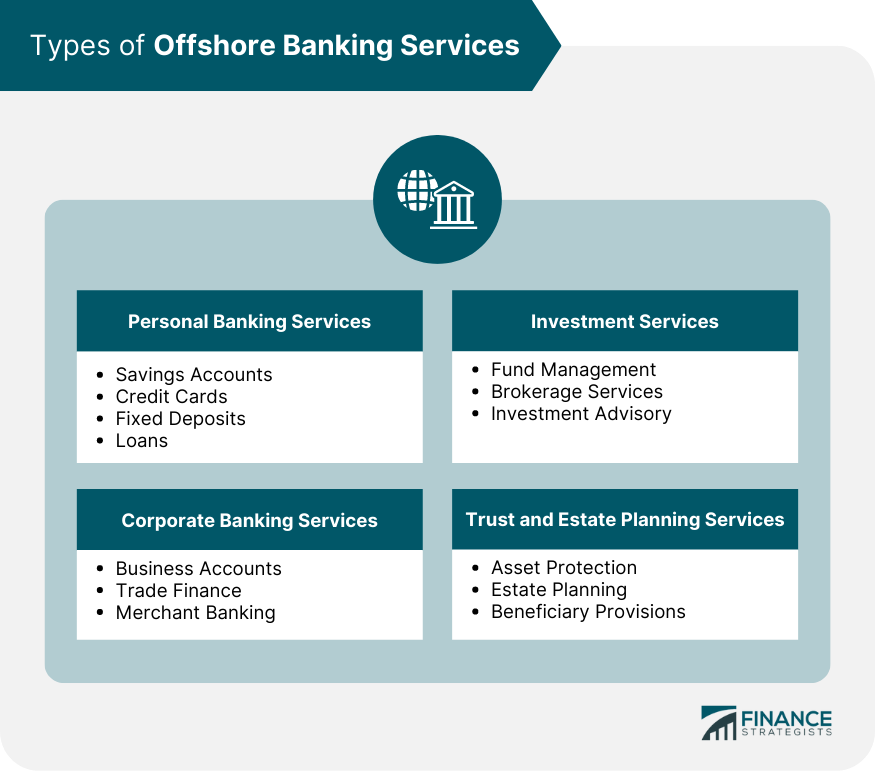Just How Offshore Business Formations Work: A Detailed Overview for Business Owners
Offshore business formations can offer substantial advantages for entrepreneurs seeking tax optimization and property security. The process entails numerous crucial actions, starting with careful jurisdiction option and complete documentation preparation. Involving expert services is vital for compliance. Nevertheless, many overlook the recurring responsibilities that comply with preliminary registration. Comprehending these intricacies can make a substantial difference in leveraging offshore opportunities successfully. The next steps are necessary for long-lasting success.
Recognizing Offshore Companies: What They Are and Why They Issue
The idea of overseas business might appear complicated, recognizing their fundamental nature and value is vital for both people and companies looking for to enhance their monetary strategies. Offshore business are entities registered outside the individual's nation of house, often in jurisdictions that provide positive regulative settings. These companies can provide numerous benefits, such as tax optimization, property protection, and boosted personal privacy.
For entrepreneurs, establishing an overseas company can facilitate global profession, minimize functional costs, and expand market reach. Additionally, overseas companies commonly permit structured conformity with international guidelines. People may likewise utilize offshore frameworks to safeguard individual assets from financial or political instability in their home nations. Inevitably, the charm of overseas firms depends on their ability to enhance financial versatility and offer calculated advantages in an increasingly interconnected worldwide economic situation - Offshore Company Formations. Understanding their functional framework and benefits is vital for making notified decisions
Choosing the Right Territory for Your Offshore Firm
Choosing the appropriate territory for an offshore company is vital for optimizing tax obligation benefits and making certain conformity with regional policies. Different jurisdictions supply varying tax incentives and regulative atmospheres that can significantly impact business procedures. A mindful analysis of these aspects is necessary for informed decision-making.
Tax Obligation Advantages Review
When thinking about the establishment of an overseas firm, recognizing the tax benefits connected with various territories is vital. Various places provide unique advantages, such as low or zero business tax obligation prices, which can substantially improve earnings. Some territories offer tax incentives for particular kinds of companies, bring in business owners looking for lowered tax responsibilities. Furthermore, particular countries apply favorable tax obligation treaties that reduce dual taxes on global earnings, ensuring that businesses retain more incomes. The selection of jurisdiction likewise impacts value-added tax (VAT) and other local taxes. Business owners must examine these elements carefully to choose a place that lines up with their company objectives, maximizing tax obligation effectiveness while remaining certified with worldwide guidelines.
Regulatory Environment Considerations
Choosing the right territory for an offshore company needs a detailed understanding of the governing setting, as different countries impose varying levels of compliance and administration. Business owners have to examine variables such as legal structures, tax obligation regulations, and reporting commitments. Jurisdictions like the British Virgin Islands and Cayman Islands are frequently favored for their business-friendly legislations and minimal reporting requirements. Conversely, some nations may impose rigorous laws that could complicate procedures and raise expenses. Additionally, the political stability and online reputation of a territory can impact the lasting practicality of the overseas firm. Mindful factor to consider of these governing aspects is necessary to ensure that the chosen territory lines up with the business's functional requirements and calculated goals.
Functional Preparing the Necessary Paperwork
Preparing the required documentation is a crucial step in the overseas firm formation procedure. Entrepreneurs must collect different lawful and recognition records to facilitate their firm's establishment in a foreign territory. Generally, this includes an in-depth business plan laying out the business's objectives and operational techniques. Additionally, personal recognition documents, such as passports or driver's licenses, are needed from the company's shareholders and directors.
In several situations, proof of address, like utility costs or financial institution declarations, is needed to validate the identifications of the entailed parties. Particular types determined by the jurisdiction, including application kinds for registration, must be completed properly. Some jurisdictions may also call for a statement of the nature of company tasks and compliance with regional guidelines. Thoroughly preparing these papers ensures a smoother enrollment procedure and aids minimize possible delays or issues, inevitably establishing a strong foundation for the offshore entity.
Involving Expert Solutions for Offshore Formation
Engaging professional services in offshore formation can considerably improve the effectiveness and performance of the process. Entrepreneurs commonly encounter intricacies that can be overwhelming, making skilled advice vital. Professional firms specializing in overseas formations provide a riches of understanding concerning territory option, firm framework, and neighborhood market problems.
These experts can assist in drafting crucial documents, guaranteeing accuracy and compliance with certain needs. They also help enhance interaction with regional authorities, lowering the chance of delays or misconceptions. Additionally, professional services can supply insights right into tactical benefits, such as tax obligation advantages and asset protection, tailored to the entrepreneur's details requirements.
Navigating Regulatory Compliance and Legal Requirements
Recognizing the governing landscape is necessary for business owners beginning on overseas company formations. Compliance with neighborhood laws and global policies is vital to stay clear of legal mistakes. Each jurisdiction has certain requirements relating to business enrollment, reporting, and taxes, which have to be thoroughly investigated.
Business owners ought to acquaint themselves with the regulations governing company framework, ownership, and operational practices in the chosen offshore place. Additionally, anti-money laundering (AML) and recognize your client (KYC) regulations commonly apply, needing appropriate documents and verification processes.
Engaging with legal specialists that focus on overseas solutions can offer very useful advice on steering through these complexities. Making sure compliance not only secures the business from possible lawful issues yet also improves trustworthiness with financiers, regulatory authorities, and companions. By adhering to the recommended legal structures, business owners can efficiently utilize the benefits of offshore business formations while reducing threats connected with non-compliance.
Establishing Banking and Financial Accounts

When an ideal financial institution is determined, business owners usually need to prepare and send various records, consisting of evidence of identification, business enrollment files, and a summary of the intended organization activities. (Offshore Company Formations)
Some financial institutions may additionally call for a minimum down payment to open up an account. Business owners need to be prepared to address inquiries regarding the resource of funds and organization procedures. By completely understanding the financial landscape and abiding with the financial institution's needs, business owners can safeguard their overseas company has smooth access to important financial solutions for efficient operation.
Maintaining Your Offshore Firm: Ongoing Duties and Ideal Practices
Preserving an offshore business includes a number of continuous duties that are essential for conformity and operational integrity. Key elements include adhering to annual conformity requirements, maintaining accurate financial records, and recognizing tax obligation responsibilities. These aspects are crucial for ensuring the company's longevity and lawful standing in its jurisdiction.
Annual Compliance Needs
While establishing an offshore company provides countless advantages, it likewise entails ongoing obligations that can not be neglected. Annual compliance requirements differ by territory however generally include sending monetary statements and annual returns to regional authorities. Firms should also pay yearly costs, which can consist of registration revivals and taxes, relying on the place. Furthermore, numerous territories call for keeping a registered office and a local rep. Failure to comply with these laws can cause fines, including penalties or perhaps dissolution of the business. Business owners need to also be aware of any type of adjustments in neighborhood legislations that might impact their conformity commitments. Staying educated and organized is essential for maintaining the advantages of an offshore company while meeting lawful obligations properly.
Keeping Financial Records
Compliance with yearly demands is just component of the recurring responsibilities linked with overseas business administration. Keeping exact monetary records is crucial for assuring openness and accountability. Entrepreneurs must systematically document all purchases, including earnings, costs, and possessions. This practice not just help in interior decision-making however also prepares the firm for prospective audits from regulatory authorities.
On a regular basis upgrading economic declarations, such as revenue and loss accounts and annual report, is essential for tracking the business's monetary health. Making use of accountancy software can streamline this procedure, making it easier to preserve and generate reports compliance. On top of that, business owners ought to take into consideration looking for expert accountancy services to guarantee adherence to local laws and best practices, therefore safeguarding the stability and track record of their offshore procedures.

Tax Obligations Overview
Steering through the intricacies of tax responsibilities is crucial for the effective management of an overseas company. Business owners should understand the tax laws of both their home country and the territory where the offshore entity is developed. Compliance with neighborhood taxes legislations is crucial, as dig this failing to stick can cause fines or legal concerns. Routinely filing essential income tax return, even when no tax may be owed, is frequently needed. Furthermore, preserving exact and updated monetary documents is essential for demonstrating compliance. Looking for advice from tax obligation professionals acquainted with global tax obligation legislation can aid navigate these responsibilities successfully. By implementing best practices, entrepreneurs can ensure that their overseas operations remain monetarily viable and lawfully compliant.

Regularly Asked Inquiries
Exactly how Lengthy Does the Offshore Business Development Process Typically Take?
The overseas firm formation process normally ranges from a couple of days to numerous weeks. Aspects influencing the timeline include territory, paperwork requirements, and responsiveness of legal and monetary institutions involved in the configuration.
What Are the Prices Related To Keeping an Offshore Company?
The prices connected with maintaining an overseas business can differ commonly. They generally include yearly registration charges, conformity expenses, accounting solutions, and feasible lawful charges, depending upon the jurisdiction and specific organization tasks involved.
Can I Open Up a Personal Savings Account for My Offshore Company?
Opening up a personal savings account for an offshore company is normally not allowed. Offshore accounts need to be organization accounts, mirroring the company's tasks, thereby following policies and ensuring appropriate economic administration and legal accountability.
Exist Limitations on Foreign Ownership of Offshore Companies?

What Takes place if I Fail to Abide With Offshore Rules?
Failing to abide by offshore guidelines can cause serious penalties, including hefty penalties, loss of business licenses, and possible criminal fees. Additionally, non-compliance look what i found might result in reputational damages and troubles in future service operations.
Offshore business are entities registered outside the person's country of residence, often in territories that supply favorable regulative atmospheres. Picking the proper jurisdiction for an offshore firm is crucial for making best use of tax advantages and making certain compliance with local guidelines. When considering the establishment of an overseas company, comprehending the tax obligation advantages connected with numerous territories is necessary. Picking the appropriate territory for an overseas company needs a complete understanding of the governing atmosphere, as different countries enforce varying levels of compliance and administration. Furthermore, the political security and credibility of a territory can impact the long-term stability of the overseas firm.